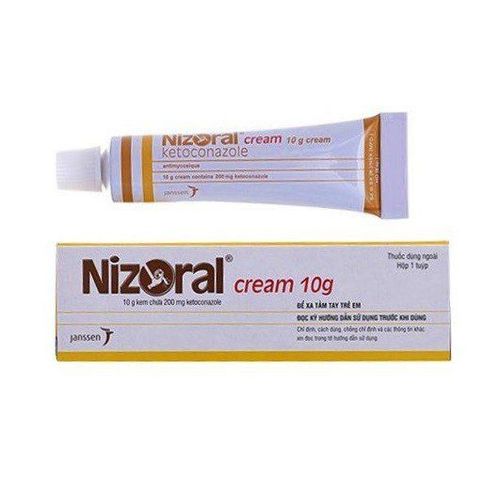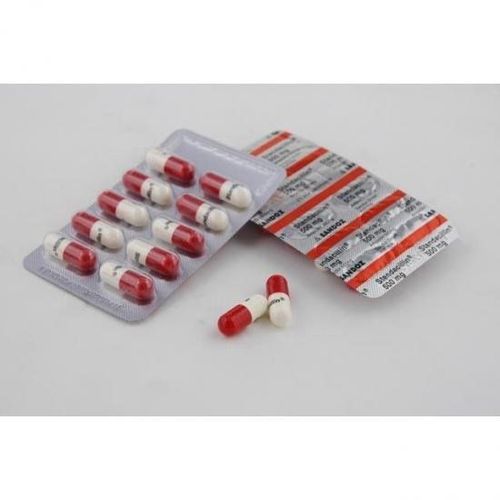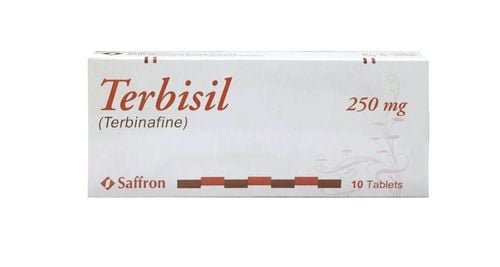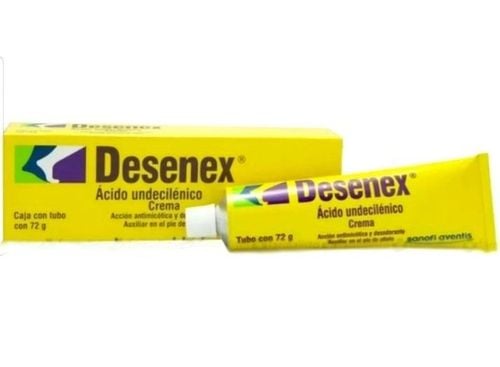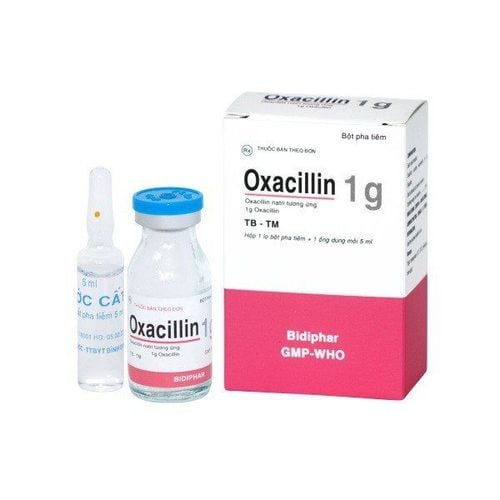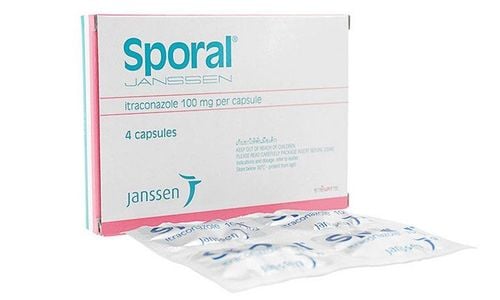This is an automatically translated article.
Itraconazole Capsule containing the active ingredient Itraconazole is indicated in the treatment of diseases caused by fungi such as nail fungus, gynecological fungus, visceral fungus... Let's learn about its uses and notes when using the drug. Itraconazole Capsule through the article below.
1. Uses of Itracole Capsule
"What is Itracole Capsule?". Itraconazole capsule contains the active ingredient Itraconazole 100mg, which is prepared in the form of film-coated tablets. Itraconazole belongs to the group of antifungal drugs acting by inhibiting ergosterol biosynthesis, disrupting fungal cell membrane function and affecting fungal cell growth. The spectrum of action of Itraconazole includes the following fungi: Histoplasma, Coccidioides, Cryptococcus, Candida, Sporotrichosis spp, Blastomyces and Sporotrichosis spp...
Itraconazole Capsule is indicated in the following cases:
Candida infections in vagina, vulva; Fungal infections in mucous membranes, ophthalmic: tinea capitis, ringworm, fungal keratitis, oral candidiasis... Yeast, onychomycosis caused by Dermatophyte; Treatment of visceral fungi caused by Aspergillus and Candida, Cryptococcus (including meningitis), Sporothrix, Histoplasma, Blastomyces, Paracoccidioides.
2. Dosage of Itraconazole Capsule
Dosage of Itraconazole Capsule is prescribed by the treating doctor based on the patient's medical condition and tolerability. Some recommendations on the dosage of Itraconazole are as follows:
Treatment of candidiasis in the vagina and vulva: Take 1 tablet (100mg)/time x 2 times/day, the duration of use is 3 days. Treatment of tinea versicolor: Take 2 tablets/time/day for 7 days. Treatment of ringworm: Take 2 tablets / time / day for 7 days or take 1 tablet / time x 2 times / day for 15 days. In case the treated skin area has high keratinization such as fungal infection on the soles of the feet, the palms can be considered to take 2 tablets x 2 times/day for 7 days or 1 tablet/time/day for 30 days. Treatment of candida infection in the throat - mouth: Take 1 tablet / time / day for 15 days. For immunocompromised patients, organ transplant recipients, or AIDS patients, a dose of 2 tablets once daily for 15 days may be considered. Treatment of nail fungus: Divided into 2-3 courses of treatment, each course of treatment lasts 7 days. The daily dose is 4 tablets divided into 2 doses. Each course of treatment is 3 weeks apart without medication. Treatment of visceral fungus: Dosage and duration of drug use depend on the type of fungus as follows: Aspergillus infection: Take 2 tablets/time/day for 2-5 months, in case of disseminated disease, the dose may be increased. 2 tablets/time x 2 times/day; Candida infection: Take 1-2 tablets/day for 3 weeks to 7 months; Epidural Cryptococcus infection: Take 2 tablets/time/day for 2 months to 1 year; Meningitis caused by Cryptococcus: The loading dose is 2 tablets/time x 2 times/day. The maintenance dose is 2 tablets/time/day; Histoplasma infection: Take 2 tablets/time x 1-2 times/day, the average duration of treatment is about 8 months; Fungal infection Sporothrix schenckii: Take 1 tablet/time x 1 time/day for 3 months; Paracoccidioides brasiliensis: Take 1 capsule/time/day for 6 months; Chromomycosis (Fonsecaea, Cladosporium): Take 1-2 tablets/time x 1 time/day for 6 months; Blastomyces dermatitidis: Take 1 tablet once a day for 6 months. Note that the above dosage is for reference only, patients need to use the drug exactly as prescribed by the treating doctor.
3. Itraconazole capsule side effects
Itraconazole Capsule can cause some side effects as follows:
Common: Dizziness, headache, vomiting, nausea, digestive disorders; Uncommon: Rash, allergy, pruritus, menstrual disorders, angioedema, hepatitis, hypokalemia; Patients need to stop using the drug and inform the doctor if they experience any unwanted effects while taking Itraconazole Capsule.
4. Precautions when using Itraconazole Capsule
4.1. Contraindications Contraindicated to use Itraconazole Capsule in the following cases:
Patients with hypersensitivity to Itraconazole and any of its ingredients; Women who are pregnant or intend to become pregnant; Patients with reduced gastric acid; Patients with cardiac dysfunction or heart failure. 4.2. Precautions for use Short-term treatment with Itrazonazol e does not affect liver function, however, it is not recommended to use the drug in patients with liver failure. Patients should be checked for liver function periodically in case of long-term treatment with the drug.
There are no clinical studies on the efficacy and safety of Itraconazole in children. Therefore, it is not recommended to use the drug in the treatment of children.
5. Drug interactions
Concomitant use of Itraconazole with drugs metabolised by CYP3A4 enzyme because of the risk of prolonging the QT interval are as follows: Cisapride, Astemizole, Levacetylmethadol (Levomethadyl), Dofetilide, Mizolastine, Sertindole, Pimozide, Quinidine, Terfenadine. The risk of adverse events is increased when Itraconazole is used concomitantly with an HMG-CoA reductase inhibitor metabolized by the CYP3A4 enzyme, such as Simvastatin and Lovastatin. Do not use Itraconazole together with Midazolame, Oral Triazolame, Ergot Alkaloid Inhibitors such as Ergometrine (Ergonovine), Dihydroergotamine, Methylergometrine (Methylergonovine), and Ergotamine. Drug interactions occur that reduce the therapeutic effect of Itraconazole Capsule, increasing the risk of unwanted effects. Therefore, patients need to inform the treating doctor of any drugs, food or supplements they are using before being treated with Itraconazole Capsule.
Please dial HOTLINE for more information or register for an appointment HERE. Download MyVinmec app to make appointments faster and to manage your bookings easily.




